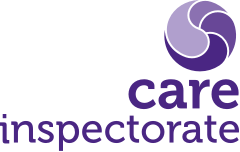As we and our loved ones age, it’s crucial to prioritise your mental well-being. Mental stimulation plays a vital role in maintaining cognitive function, memory, and overall quality of life. In this article, we’ll explore the significance of mental stimulation for elderly individuals and share Call-In Homecare’s top tips on how to keep your mind active as you age.
In today’s fast-paced world, it’s easy to overlook the significance of mental stimulation, especially for our elderly loved ones. As you age, ensuring you keep your mind active becomes increasingly crucial for overall well-being. This is where the importance of mental stimulation for elderly individuals comes into play. Engaging in activities that challenge the brain can help improve cognitive function, memory retention, and overall mental health.
The National Council on Ageing notes that cognitive decline, also known as subjective cognitive decline, happens when an individual experiences a reduction in their mental processes’ effectiveness. This can lead to regular confusion or memory lapses.
For our aging loved ones, mental stimulation is not just about keeping busy; it’s about maintaining a sense of purpose and connection to the world around them. Whether it’s solving puzzles, reading books, playing music, or engaging in social interactions, these activities can help stimulate the brain and prevent cognitive decline. At Call-in Homecare, we understand the profound impact of mental stimulation on the elderly and strive to incorporate stimulating activities into our care plans to ensure the well-being of our service users.
By providing opportunities for mental engagement and social interaction, we can help our elderly loved ones lead fulfilling lives and maintain their cognitive abilities for longer. It’s essential to recognise the value of mental stimulation in promoting overall health and happiness in our aging population.
1. Engaging in Intellectual Activities to Keep Your Mind Active
Encouraging elderly loved ones to participate in intellectual activities can help keep their minds sharp. Activities like reading books, solving puzzles, playing board games, or even learning a new skill stimulate their cognitive abilities and promote mental agility.

2. Social Interaction
Maintaining social connections is essential for mental stimulation. Regular social interaction can prevent feelings of loneliness and isolation, which are common among the elderly. Encourage your loved ones to engage in activities that involve socializing, such as joining clubs, attending community events, or even connecting with friends and family through video calls.
3. Physical Exercise
Physical exercise not only benefits the body but also has a positive impact on mental health. Regular physical activity increases blood flow to the brain, improving cognitive function and reducing the risk of cognitive decline. Encourage your loved ones to engage in exercises suitable for their abilities, such as walking, yoga, or gentle stretching routines.
4. Hobbies and Creative Pursuits to Keep Your Mind Active
Encouraging your elderly loved ones to pursue hobbies and creative outlets can provide a sense of purpose and fulfilment. Whether it’s painting, gardening, knitting, or playing a musical instrument, engaging in activities they enjoy stimulates their minds and enhances their overall well-being.
5. Technology and Digital Engagement
Introducing your loved ones to technology can open up a world of possibilities for mental stimulation. Teach them how to use smartphones, tablets, or computers to connect with others, explore new interests, and access a wealth of information. From online courses to virtual museum tours, the digital world offers endless opportunities for intellectual growth.
Incorporating mental stimulation into the lives of our elderly loved ones is crucial for their overall well-being. By engaging in intellectual activities, promoting social interaction, encouraging physical exercise, fostering hobbies and creative pursuits, and embracing technology, we can help them lead fulfilling and mentally active lives. Remember, Call-In Homecare is here to support you every step of the way. If you believe that you or a relative is in need of person-centered care, click here to see how we can best support you.













